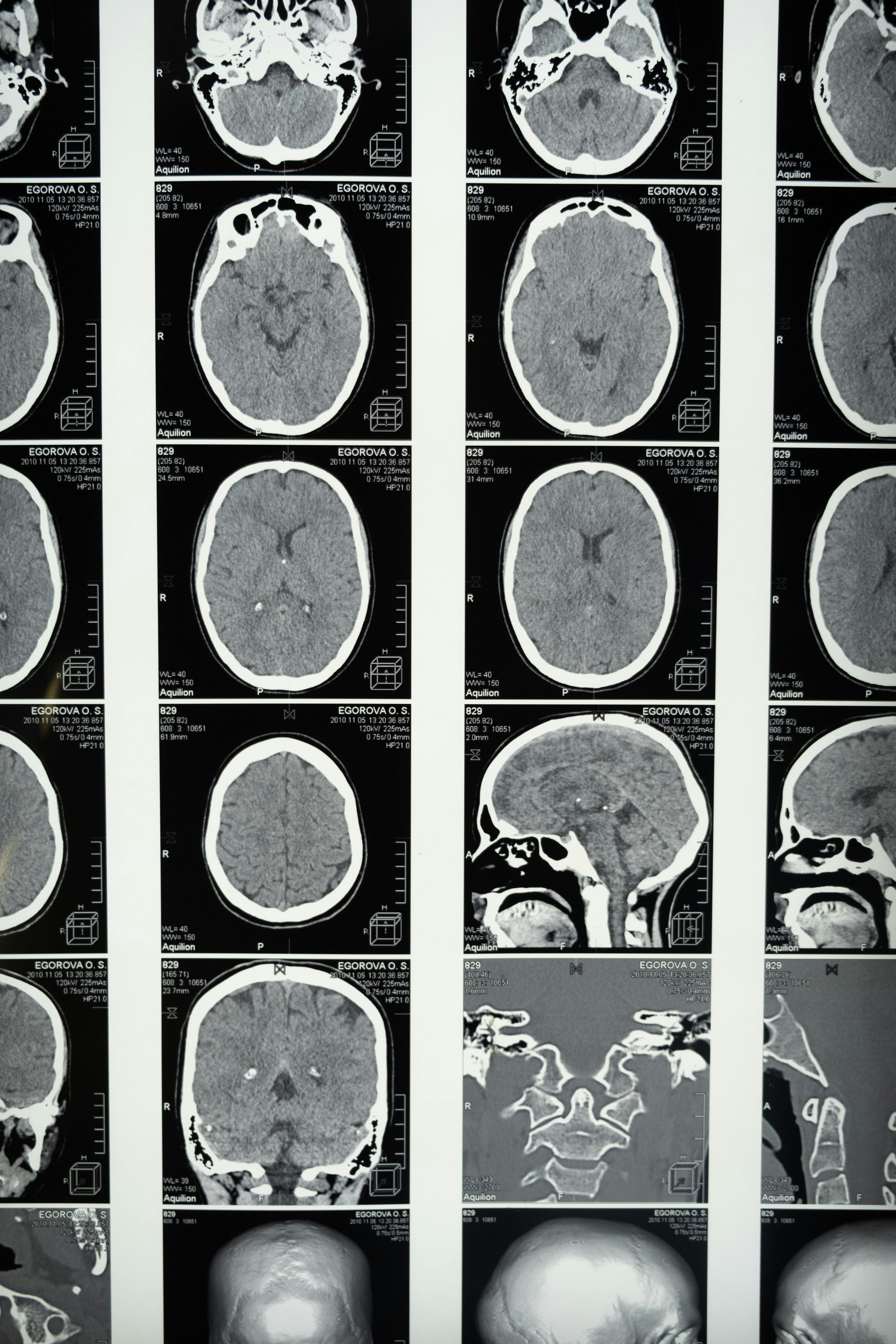If you’ve ever wondered whether supplements can truly enhance brain function, you’re not alone. With the increasing demand for cognitive performance and mental clarity, the topic of using supplements as a means to improve brain health has become of great interest. While it’s clear that a balanced diet and exercise play a significant role in maintaining a healthy brain, exploring the potential benefits of certain supplements is a captivating avenue worth exploring. In this article, we will delve into the fascinating world of brain-boosting supplements and how they can potentially support healthy brain function and cognitive performance. So, let’s embark on this journey together and uncover the possibilities that lie within!

Understanding Brain Function
Overview of the brain
The brain is an incredibly complex organ that serves as the control center of the body. It is responsible for our thoughts, emotions, memories, and actions. Comprised of billions of neurons, the brain is constantly sending and receiving signals, allowing us to process information and interact with the world around us.
The importance of brain function
Maintaining healthy brain function is crucial for overall well-being. A well-functioning brain is essential for cognitive abilities such as memory, attention, and problem-solving. It also plays a vital role in regulating emotions and behavior. As we age, it becomes even more important to support brain health and prevent cognitive decline.
Factors affecting brain function
Several factors can influence brain function. These include genetics, age, lifestyle choices, and environmental factors. While some of these factors may be out of our control, there are steps we can take to support and enhance brain function. One such approach is through the use of brain-boosting supplements.
Introduction to Supplements
Definition of supplements
Supplements, also known as dietary supplements, are products containing vitamins, minerals, herbs, or other substances that are intended to supplement one’s diet and provide additional nutrients. These supplements come in various forms such as capsules, tablets, powders, or liquids.
Types of brain-boosting supplements
There are several types of brain-boosting supplements available on the market today. These supplements are specifically formulated to enhance cognitive function, improve memory, and support overall brain health. Some of the most commonly used brain-boosting supplements include omega-3 fatty acids, vitamin B12, folate, ginkgo biloba, and L-theanine.
How supplements work
Brain-boosting supplements work by providing the body with essential nutrients that support brain function. These nutrients can help improve blood flow to the brain, enhance neurotransmitter activity, and protect against oxidative stress. By supplementing with these specific ingredients, individuals aim to optimize brain health and potentially enhance cognitive performance.

Supplement Ingredients for Brain Function
Omega-3 Fatty Acids
Omega-3 fatty acids, particularly EPA (eicosapentaenoic acid) and DHA (docosahexaenoic acid), are essential nutrients known for their numerous health benefits. These fatty acids are found in fatty fish such as salmon, mackerel, and sardines. Supplementing with omega-3 fatty acids has been associated with improved cognitive function, reduced inflammation, and protection against age-related cognitive decline.
Vitamin B12
Vitamin B12 plays a crucial role in brain function and the production of red blood cells. It is involved in the synthesis of neurotransmitters and the maintenance of the myelin sheath, a protective covering of nerve fibers. Low levels of vitamin B12 have been linked to memory problems and cognitive decline. Supplementing with vitamin B12 can help support brain health and potentially improve cognitive performance.
Folate
Folate, also known as vitamin B9, is important for brain development and function. It is involved in the production of DNA and neurotransmitters like serotonin and dopamine. Adequate folate levels have been associated with a reduced risk of depression and cognitive decline. Supplementing with folate can help ensure optimal brain function and support mental well-being.
Ginkgo Biloba
Ginkgo biloba is an herbal supplement that has been used for centuries in traditional medicine. It is believed to improve memory and cognitive function by increasing blood flow to the brain and acting as an antioxidant. Some studies have shown that ginkgo biloba may be beneficial for individuals with age-related cognitive decline and memory impairment.
L-Theanine
L-Theanine is an amino acid found in green tea and certain mushrooms. It is known for its calming and relaxing effects, which can help reduce stress and anxiety. L-Theanine also promotes alpha wave activity in the brain, which is associated with a state of relaxed alertness. Supplementing with L-Theanine may enhance focus, attention, and overall cognitive performance.
Effectiveness of Supplements
Scientific studies on brain function and supplements
Numerous scientific studies have been conducted to explore the relationship between brain function and supplements. While the research is ongoing, some studies have shown promising results. For example, a study published in the Journal of Clinical Psychopharmacology found that omega-3 fatty acid supplementation improved cognitive function in older adults with mild cognitive impairment.
Potential benefits of supplements
Supplements for brain function have the potential to provide several benefits. These may include improved memory, enhanced focus and attention, increased mental clarity, and a reduction in age-related cognitive decline. It is important to note, however, that individual responses to supplements may vary, and not all individuals may experience the same benefits.
Factors influencing supplement effectiveness
Several factors can influence the effectiveness of brain-boosting supplements. These include individual genetics, age, overall health, dosage, and the quality of the supplement. It is important to consult with a healthcare professional to determine the appropriate supplement regimen and ensure it is safe and effective for your specific needs.

Recommended Dosage and Timing
Optimal dosage for brain health
Determining the optimal dosage of brain-boosting supplements can be challenging, as it varies depending on the specific nutrient and individual needs. It is recommended to follow the dosage instructions provided by the supplement manufacturer or consult with a healthcare professional. They can help tailor the dosage to your specific requirements and ensure you are getting the appropriate amount of nutrients.
Best time of day to take supplements
The timing of supplement intake can also play a role in their effectiveness. Some supplements, such as omega-3 fatty acids, are best taken with meals to improve absorption. Others, like L-Theanine, may be taken at any time of day. It is advisable to read the instructions on the supplement packaging or consult with a healthcare professional to determine the best timing for your specific supplements.
Duration of supplement intake
Ideally, brain-boosting supplements should be taken consistently over an extended period to achieve optimal results. It takes time for nutrients to build up in the body and exert their effects. It is important to follow the recommended duration of use provided by the supplement manufacturer or consult with a healthcare professional for guidance.
Potential Side Effects and Risks
Common side effects of brain-boosting supplements
While brain-boosting supplements are generally safe for most individuals, some may experience mild side effects. Common side effects may include digestive issues, headaches, dizziness, or allergic reactions. It is important to monitor your body’s response to supplements and discontinue use if any adverse effects occur.
Interaction with other medications
Certain brain-boosting supplements, particularly herbal supplements like ginkgo biloba, may interact with medications. It is essential to inform your healthcare professional about any supplements you are taking to avoid potential interactions or adverse effects. They can help determine if a supplement is safe to use with your current medications.
Risks associated with long-term use
Long-term use of certain supplements may carry some risks. For instance, high doses of certain fat-soluble vitamins like vitamin A and vitamin E can be toxic. It is crucial to follow the recommended dosages and consult with a healthcare professional to ensure long-term supplement use does not pose any health risks.
Choosing the Right Supplements
Consulting with healthcare professionals
When it comes to choosing brain-boosting supplements, it is advisable to consult with a healthcare professional. They can assess your specific needs, evaluate your overall health, and recommend appropriate supplements. Healthcare professionals can also help monitor your progress and make any necessary adjustments to your supplement regimen.
Considering individual needs and goals
A one-size-fits-all approach does not apply when it comes to brain-boosting supplements. Consider your specific needs and goals when choosing supplements. For example, if memory improvement is a priority, focusing on supplements like omega-3 fatty acids and ginkgo biloba may be beneficial. Tailoring your supplement selection to your individual needs can maximize the potential benefits.
Quality control and reputable brands
When selecting supplements, it is important to prioritize quality and choose reputable brands. Look for supplements that have been third-party tested for purity, potency, and quality. This ensures that you are getting a reliable product that contains the ingredients it claims to have. It is also a good idea to read customer reviews and seek recommendations from trusted sources.
Combining Supplements with Other Brain-Boosting Activities
Diet and nutrition for brain health
Supplements are just one piece of the puzzle when it comes to supporting brain health. A balanced diet rich in fruits, vegetables, whole grains, lean proteins, and healthy fats is essential for optimal brain function. Nutrients obtained from food sources work synergistically with supplements to promote brain health. Maintaining a nutritious diet should be a key component of any brain-boosting regimen.
Mental exercises and cognitive training
Engaging in mental exercises and cognitive training can also help improve brain function. Activities such as puzzles, reading, learning new skills, and engaging in challenging mental tasks can stimulate neural connections and promote cognitive abilities. When combined with brain-boosting supplements, mental exercises can further enhance brain health and cognitive performance.
Physical exercise and its impact on brain function
Physical exercise not only benefits the body but also has a positive impact on brain function. Regular exercise has been shown to improve blood flow to the brain, promote the growth of new neurons, and enhance cognitive functions such as memory and attention. Incorporating physical exercise into your routine can complement the effects of brain-boosting supplements and support overall brain health.
Lifestyle Factors for Optimal Brain Function
Adequate sleep and its influence on brain health
Getting sufficient sleep is crucial for optimal brain function. During sleep, the brain consolidates memories, clears waste products, and restores energy levels. Chronic sleep deprivation has been associated with cognitive impairment and an increased risk of neurological disorders. Prioritize good sleep hygiene and aim for seven to nine hours of quality sleep each night to support brain health.
Stress management and its role in cognitive performance
Chronic stress can have negative effects on brain function and cognitive performance. Stress hormones, such as cortisol, can impair memory, attention, and decision-making abilities. Engaging in stress management techniques such as meditation, deep breathing exercises, and regular relaxation practices can help reduce stress levels and support optimal brain function.
Social interaction and its impact on brain function
Social interaction plays a significant role in brain function and overall well-being. Engaging in meaningful social connections and activities stimulates brain activity and can reduce the risk of cognitive decline. Stay socially active by participating in group activities, maintaining friendships, and seeking social support when needed. Social engagement can complement the effects of brain-boosting supplements and contribute to optimal brain function.
Conclusion
Summary of the benefits of supplements for brain function
Supplements have the potential to support healthy brain function and enhance cognitive performance. Nutrients such as omega-3 fatty acids, vitamin B12, folate, ginkgo biloba, and L-Theanine can provide specific benefits and promote optimal brain health. However, it is important to remember that supplements should be used in conjunction with other brain-boosting activities and as part of a holistic approach to brain health.
Importance of a holistic approach to brain health
While brain-boosting supplements can be a valuable addition to one’s regimen, they are not a magic solution on their own. A holistic approach that combines supplements with a nutritious diet, mental exercises, physical activity, adequate sleep, stress management, and social interaction is key to optimizing brain function. By addressing multiple factors that influence brain health, individuals can enhance their cognitive abilities and improve overall well-being.